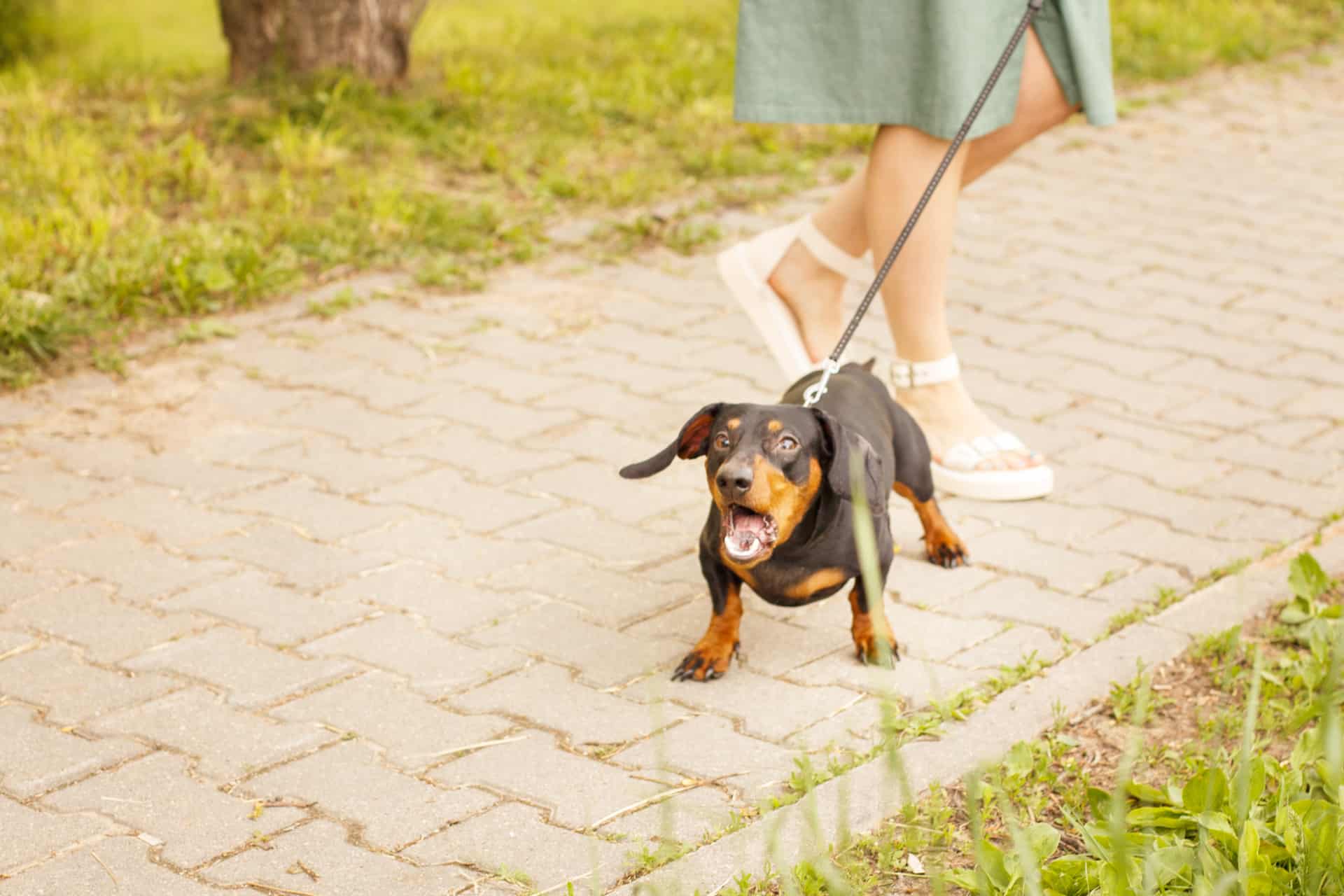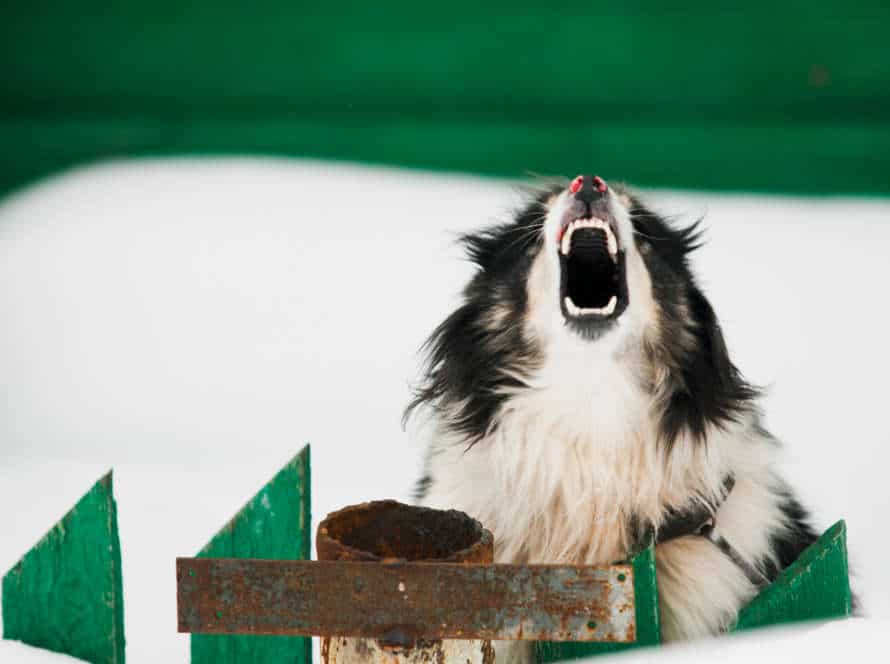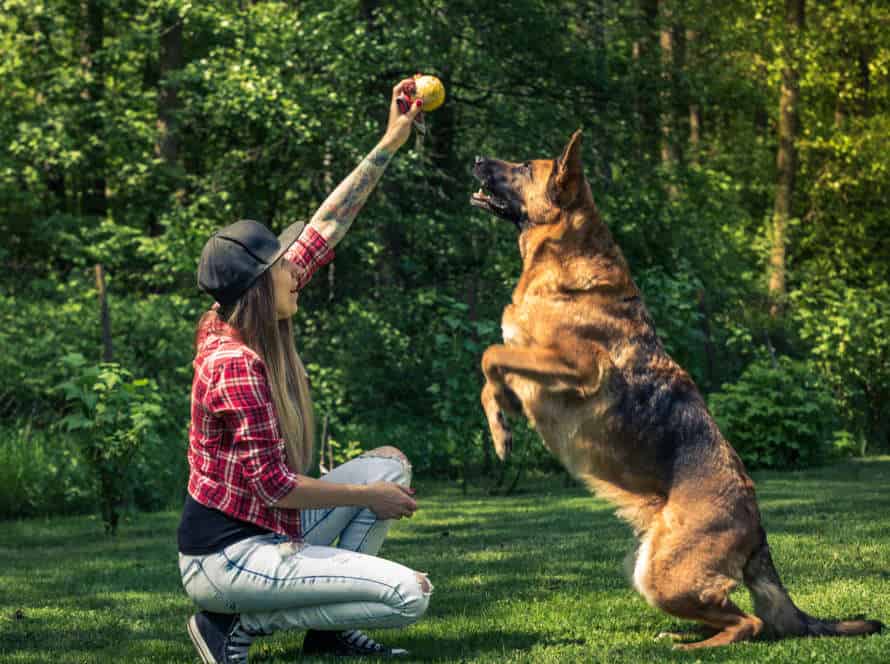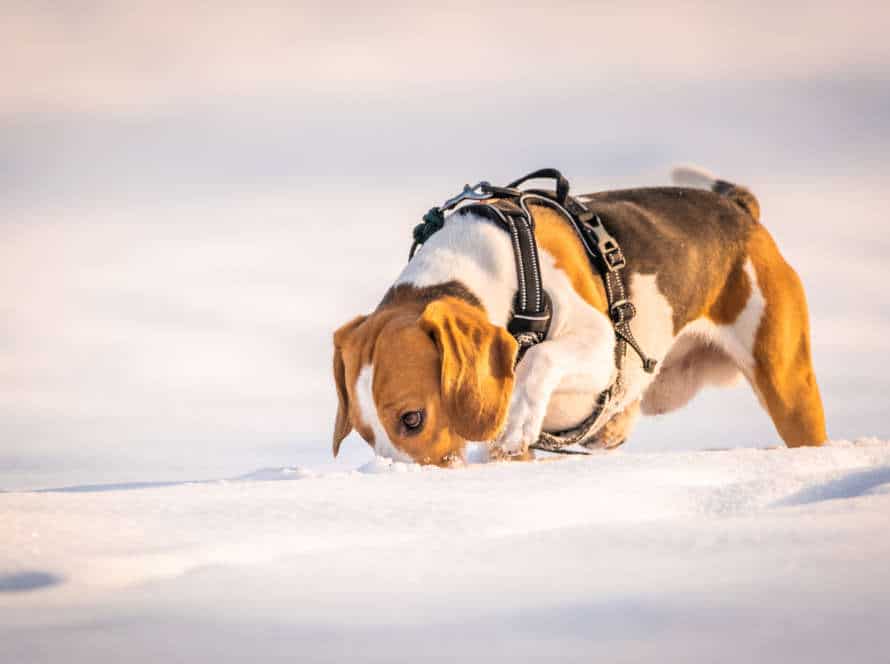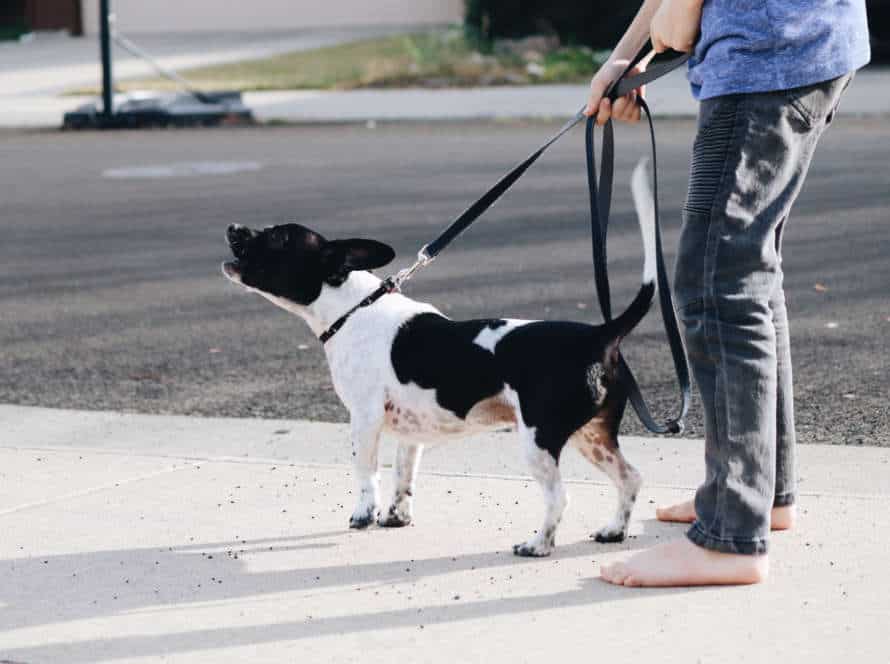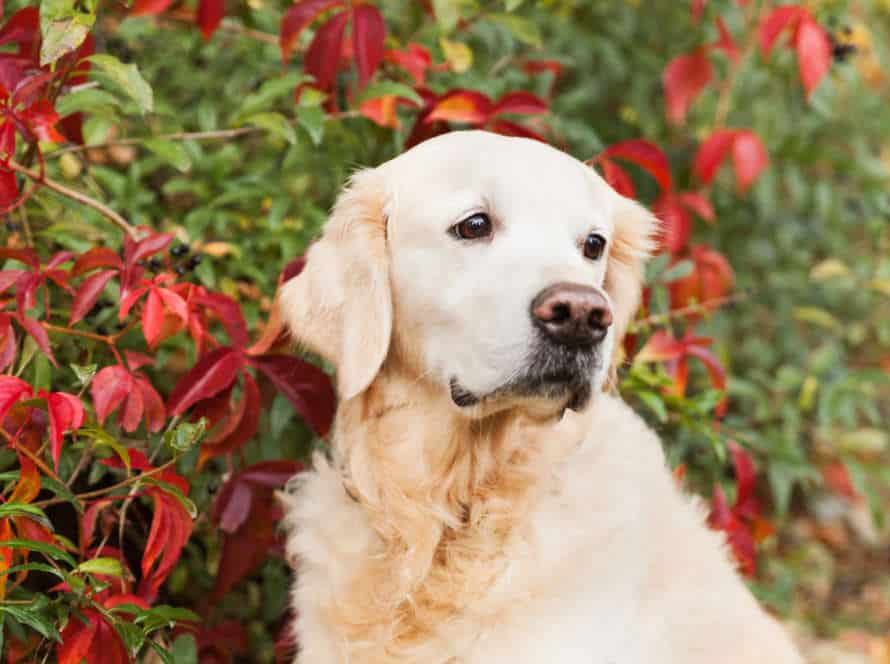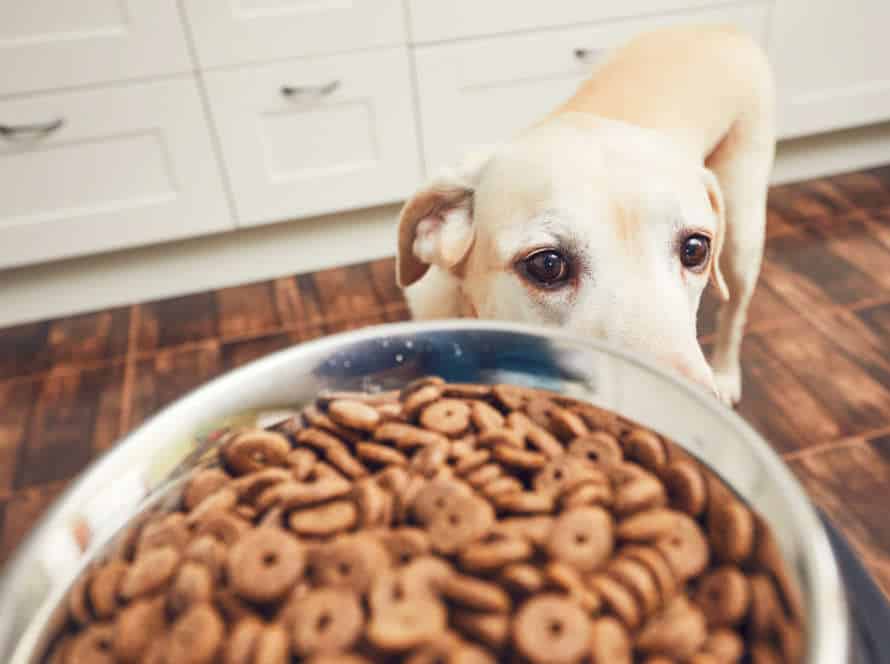Why Puppies May Show Aggression Towards Other Dogs
Puppies sometimes show aggression towards other dogs. Reasons include fear, territoriality, lack of socialization and genetic predisposition.
- Fear: When a puppy meets another dog, it may feel threatened and respond aggressively to protect itself.
- Territoriality: Puppies can become aggressive if another dog enters their home or yard.
- Lack of Socialization: If a puppy didn’t play with other dogs during its critical development period, it might not know how to act around them, leading to fear and aggression.
- Genetic Predisposition: Certain breeds are more likely to be aggressive towards other animals due to their genetics and past use as guard dogs.
If your puppy behaves aggressively towards other dogs, talk to a professional trainer or behaviorist for help.
Understanding puppy aggression towards other dogs
Puppies are often sweet and loving. However, they can sometimes display aggression, mainly to other pooches. This can be disturbing to witness. It is vital to grasp why the pup is reacting this way. This article will discuss the diverse reasons for a puppy’s aggression and what the owner can do to deal with the issue.
Nature vs Nurture – Are aggressive puppies born or made?
Aggressive behavior in pups towards other canines is a complex matter. It’s both caused by nature and nurture. Some pups may be genetically predisposed to being aggressive. But their experiences and environment also matter.
Early socialization, training, and positive experiences with other dogs can help reduce the chance of a pup becoming aggressive later in life. But a lack of socialization or bad experiences can lead to fear, anxiety, and aggression.
We must remember that aggression is a natural behavior in dogs. It helps them protect themselves or their owners. So, as responsible dog owners we need to give our pups the right training and socialization.
Pro Tip: If your pup’s showing aggression, get help from a vet or certified dog behaviorist.
Age-related aggression – Is the aggression a sign of a developing personality?
Age-related aggression in puppies can be normal. But, it’s important to address it early.
There are many reasons why puppies may show aggression. Fear, possessiveness, playfulness, and lack of socialization are some. Knowing the cause is key to managing it.
Gradually introduce your puppy to other dogs in a controlled environment. Exercise and attention are a must. Contact a professional for guidance.
Managing and addressing aggression in puppies can ensure a healthy and happy life.
Socialization and exposure – How much does it matter?
Socialization and exposure are very important to shape a puppy’s behavior. Especially when it comes to aggression with other dogs.
Puppies who don’t meet new people or animals early on may act aggressive out of fear or unfamiliarity.
Exposure to different things, like people, animals, sounds, and smells, helps them become more confident and adjustable.
Start socializing as soon as possible, preferably in the first three months of life. This is a great chance to make positive connections with people and other animals.
Puppy socialization classes, dog parks, and controlled play with well-behaved dogs are great ways to show them different environments and help them build social skills.
Adequate exposure to the right things during the important period leads to an adult dog that is socialized and confident.
The consequences of puppy aggression towards other dogs
Puppies can be aggressive to other dogs. This can vary from loud barks to snarling and snapping. Such aggression is typical in puppies. But, if it’s not managed, then it can lead to behavioral issues.
Let’s examine the potential outcomes of puppy aggression towards other canines.
Potential harm – When playful aggression turns into harmful behavior
Playful aggression in puppies is normal. But it can become dangerous if not controlled. So, be on the lookout for signs of potential harm.
Growling, barking, and snarling that won’t stop when scolded. Biting or nipping hard enough to cause injury. Aggressively mounting or humping other dogs. Refusing to back down from a fight even when the other dog gives up. And, being too possessive of toys or food leading to aggressive behavior.
If you spot any of these signs, get professional help and training for your puppy. Ignoring or understating this behavior could be hazardous for both your puppy and the other dogs.
The impact of unrestrained aggression – On the puppy and on the other dogs in the household
Puppies who are too aggressive can have bad effects. This can be for the puppy itself, or other dogs in the home.
The puppy may become fearful, anxious, or too dominant. This makes it hard to form relationships with other dogs or people.
The aggression could hurt other dogs in the house. It could lead to fights or attacks, causing injury.
If your puppy is being aggressive, it is important to act fast. Positive reinforcement, socialization, and professional help can help.
The risk of ingrained behavior – How it can carry into the dog’s adulthood
Puppy aggression towards other dogs is a risk factor. If not addressed early on, it can continue into adulthood.
Consequences of puppy aggression include:
- Physical harm to other dogs, possibly leading to injuries and death.
- Fear of other dogs in puppies that have been attacked or routinely intimidated.
- Missing out on opportunities to socialize and form positive relationships.
- Difficulties in training adult dogs if aggressive behavior is not addressed early.
It’s important to use proper socialization, training, and behavior modification to avoid the risk of ingrained behavior in puppies.
Ways to prevent puppy aggression towards other dogs
Puppy owners, take heed! Aggression towards other dogs is a cause for concern. Tackle it early, to stop it from getting worse.
Here’s what you can do: Strategies exist for dealing with the problem. Let’s explore them!
Early socialization – Reducing the risk of aggression
Early socialization of puppies is very important for avoiding aggression with other dogs. Exposing a pup to people, places, and other pups helps it become confident in diverse situations. This reduces the risk of aggression.
Here are some ways to socialize your pup:
- Puppy Classes: Signing up your pup in a top-notch puppy class can be great. Not only will they meet other puppies and learn to socialize with them, but they will also experience different people, sounds, and environments.
- Controlled Playdates: Set up playdates with known, friendly dogs. Make sure the area is safe and keep the pups on a leash until they become relaxed with each other.
- Exposure: Let your pup experience different places, people, and sounds like traffic, loud music, and the park. Slowly increase the intensity and length of exposure.
Pro Tip – Have fun socializing your pup by giving treats, compliments, and lots of love. Keep an eye on their body language and level of comfort and never push them into interactions.
Trainer consultation – Addressing aggressive behavior early on
Puppies may act aggressively towards other dogs for various reasons, like fear and lack of socialization. It’s key to address this behavior early for it not to worsen. Consulting a trainer can be very beneficial in understanding the origin of this aggression and how to prevent it.
Here are some tips for preventing puppy aggression:
- Socialization: Start exposing your pup to other dogs, people, and environments from a young age. This way, they’ll be more accustomed and more confident in unfamiliar situations.
- Positive reinforcement: Whenever your pup has good behavior around other dogs, reward them with treats and praise to encourage them to keep at it.
- Firm and consistent training: Establish rules and boundaries and stick to them. This will help the pup understand what is expected of them.
- Supervision: Monitor the pup when around other dogs and intervene when necessary. This will help avoid any unwanted behavior from getting worse.
Positive reinforcement training – Teaching appropriate play and social behavior.
Puppies might act aggressively towards other dogs for many reasons, like fear, no socialization or over-excitement. Positive reinforcement training is a great way to teach your pup the right way to play and be sociable, and to stop aggressive behavior around other pooches.
Here are some tips on using positive reinforcement training with your puppy:
- Reward and encourage good behaviors while playing; like dropping toys when told or playing gently.
- Use treats and praise to reinforce good social conduct, like calmly greeting other dogs and not jumping on them.
- Don’t scold or punish your puppy for aggressive behavior, as it might make things worse.
- Socialize your puppy by exposing them to other dogs, people, and new environments in a positive and controlled way.
- Make sure your pup gets enough exercise, rest and playtime to reduce stress levels and prevent overexcitement.
Pro Tip: Get advice and tips from a professional dog trainer or behaviorist on which positive reinforcement training techniques work best for your pup.
Frequently Asked Questions
Q: Why do puppies show aggression towards other dogs?
A: There are many reasons why puppies may display aggressive behavior towards other dogs, including fear, lack of socialization, and dominance issues.
Q: Is it normal for puppies to act aggressively towards other dogs?
A: While a certain level of play-fighting is normal, excessive aggression is not. It’s important to address aggressive behavior in puppies early on to prevent it from becoming a bigger problem in the future.
Q: How can I socialize my puppy to prevent aggression towards other dogs?
A: Socializing your puppy involves exposing them to other dogs and humans in a positive, controlled environment. This can help them learn how to behave around others and reduce the likelihood of aggressive behavior towards other dogs.
Q: What are some signs of aggression in puppies towards other dogs?
A: Signs of aggression in puppies may include growling, snarling, biting, or attacking. It’s important to pay attention to your puppy’s body language and behavior around other dogs to identify any potential issues.
Q: Can aggressive behavior towards other dogs be trained out of puppies?
A: Yes, with proper training and socialization, aggressive behavior towards other dogs can often be corrected. It’s important to work with a professional trainer to address any behavior issues in a safe and effective manner.
Q: Should puppies be separated from other dogs if they display aggressive behavior?
A: It’s important to keep both your puppy and other dogs safe, so it may be necessary to separate your puppy from other dogs if they display aggressive behavior. However, this should only be done under the guidance of a professional trainer to ensure the best possible outcome for all involved.

